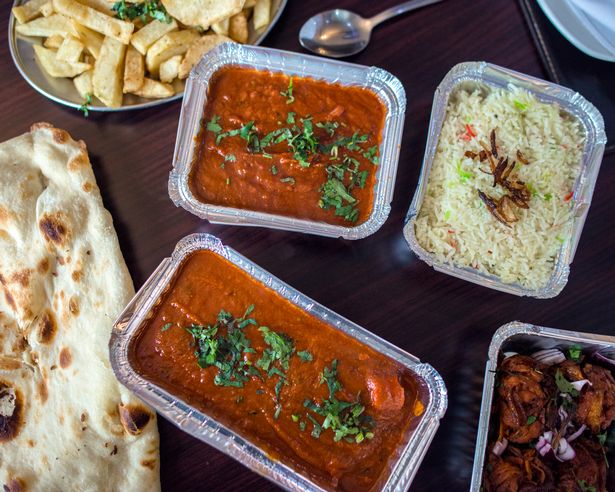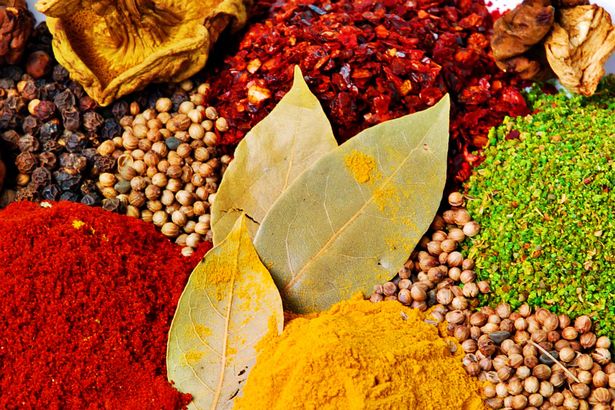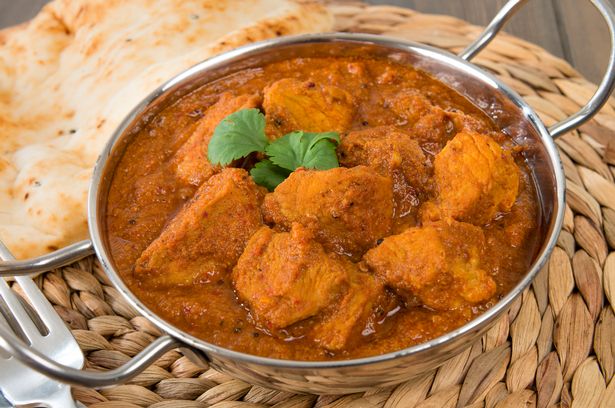Brits have been tucking into curries for comfort during the pandemic.
One survey showed orders for Indian takeaways doubled after Covid-19 hit.
And the good news is that when chosen wisely, curry can be a hot tonic for your body.
Experts say that spicy ingredients can help lower your risk of everything from cancer to heart disease.
So how do you reap the health benefits without piling on the pounds? Here are my hot tips on how to cut the calories and fat when it comes to fiery cuisine…
Just for starters: Deep-fried samosas and onion bhajis, which are like sponges for oil, are high in fat and calories. Opt for a starter such as chicken tikka or simply move straight to the main event.

Cracking idea:
There’s nothing like a few dips to kick off your meal. Try to stick to one or two deep-fried papadums, at 60-100 calories a time, and go for lower-calorie cucumber dip raita or hot lime pickle, rather than sugary mango chutney.
Saucy advice:
When it comes to main dishes, try to avoid curries that are creamy, such as masala and pasanda, which are packed with calories and fat. Choose tomato-based dishes, such as rogan josh, or drier dishes, such as bhuna.
Simply swapping a korma for a jalfrezi could halve the calories. A chicken tikka masala can come in at more than 1,000 calories. Go for oven-baked chicken tandoori instead.

Get tricksy:
If you do opt for a creamy dish, try to stick to eating the meat, spooning it on to your plate and leaving some of the sauce behind in the container. Choosing fish, such as prawns or cod, and white meat, such as chicken, will tend to be healthier than fattier red meat curries – beef, pork and lamb.
Spice things up:
If your taste buds can handle it, order a hotter curry, such as a madras or a vindaloo. These are so spicy you’ll eat more slowly and tend to eat less. Likewise, if you are making a curry at home, add plenty of chilli flakes.
Research has shown that they contain a hot substance called capsaicin, which can boost your metabolism to help you burn more fat.
Rice idea:
Pilau rice, cooked in extra oil can be 600 calories per portion. Swap it for boiled rice and save 300 calories – that’s an hour’s walking – plus around 30g of fat.
Ordering a biryani, which includes rice as part of the meal, can also cut calorie and fat levels. At home, why not try some fibre-rich brown rice with your curry for a change?

Naan better:
That naan bread might seem like a good idea, but each one can contain more than 400 calories and 12g of fat, especially if stuffed with cheese or sultanas.
Shave off 50 calories by choosing a plain one, or ordering a chapati, which has only about 115 calories and as little as 1g of fat.
Veg out:
Do order some veggie side dishes. Not only are they packed with vitamins and minerals, but something like dal has lots of protein and fibre to help fill you up.
Making a veggie curry at home is a great way to use up leftovers – simply add lots of spices for flavour. Homemade curries can also help you slash salt levels – which is great for your blood pressure.
